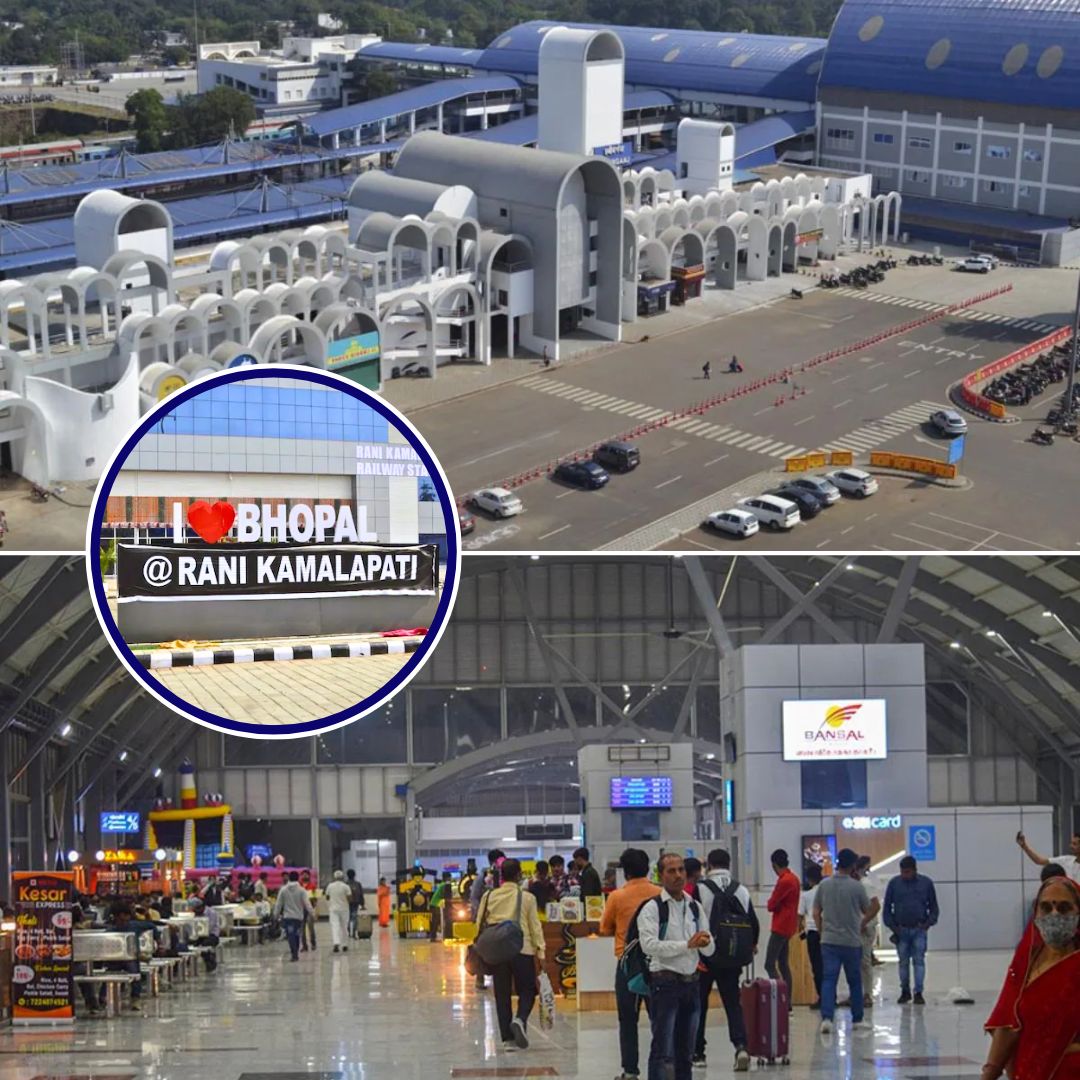India’s Rani Kamalapati Station (formerly Habibganj) in Bhopal has become the country’s first privately managed railway station, redeveloped through a Public-Private Partnership between the Bansal Group and Indian Railway Stations Development Corporation.
The ₹450 crore project introduces airport-like facilities, modern digital systems, and new commercial spaces, enhancing passenger experience for over 30,000 daily users. Officials regard this as a model for future station redevelopments under the government’s Amrit Bharat Station Scheme to combine modern amenities with affordability and safety.

Understanding the PPP Model
The PPP model in Indian Railways involves collaboration between government agencies and private entities, where the private partners finance, design, develop, operate, and maintain railway stations or infrastructure. The government retains ownership and regulatory control, while private players bring investment and operational expertise to improve service quality and efficiency.
Revenue-sharing arrangements and performance standards are contractually enforced, with projects like Rani Kamalapati serving as pilots within India’s long-term station redevelopment plan under the Amrit Bharat Station Scheme. The model aims to reduce government expenditure while accelerating station upgrades and generating commercial value through retail, hospitality, and other amenities.

Reimagining Rail Travel
Rani Kamalapati Station now offers a climate-controlled environment with six lifts, 11 escalators, digital signage, and automated ticketing. The station includes an air-conditioned lobby, waiting lounges, multi-use commercial spaces such as a super-speciality hospital and automobile showrooms, and enhanced accessibility with wheelchair-friendly pathways.
These airport-quality features, combined with a commitment to cleanliness and safety, represent a major leap from its earlier incarnation as Habibganj Station. Commuters appreciate the shorter queues and clearer information, while officials stress the importance of private management in ensuring consistent upkeep and passenger satisfaction.
Accommodation and business travellers also benefit from an onsite hotel and dedicated meeting spaces. Unique additions such as a super-speciality hospital and automobile showrooms signal a forward-thinking approach—transforming the traditional railway station into a dynamic, multi-use urban hub. Officials from the Bansal Group and IRSDC both praise the project, emphasising improved upkeep and the efficient blend of public oversight with private sector performance.

Setting Precedents
The redevelopment fits within a national effort to modernise over 1,000 railway stations across India, addressing decades-old challenges of overcrowding and poor infrastructure. The station connects key routes such as the Vande Bharat, Rajdhani, and Shatabdi Express, making it a critical hub in India’s rail network.
Since its reopening, Rani Kamalapati Station continues to receive positive feedback for cleanliness, safety, and operational efficiency. The Bhopal Railway Division is studying expanded train stoppages to increase connectivity without compromising punctuality. This ongoing adaptability highlights the station’s role as a future-ready hub shaping Indian Railways’ broader modernisation strategy.
Positive impacts extend to local businesses benefiting from increased footfall and a more vibrant station environment. The government is exploring replicating this PPP model at major stations like New Delhi and Mumbai CST, aiming to combine infrastructure investment with superior passenger services.

The Logical Indian’s Perspective
The Logical Indian supports this innovative approach to infrastructure that prioritises passenger comfort, safety, and inclusivity, so long as affordability and community concerns remain central.
By blending private sector dynamism with public accountability, PPPs can set new standards while enhancing equitable access to vital services. This model’s success hinges on a transparent, socially responsible rollout that safeguards affordability and supports railway employees.
The station at the time of it’s launch as first ever privatised station was known as Habibganj , Bhopal ,before it was renamed to Rani Kamalapati, I am proud of my then colleagues who took up the challenge and made it possible in such record time, https://t.co/8883T3jra0
— Suresh Prabhu (@sureshpprabhu) November 17, 2025












